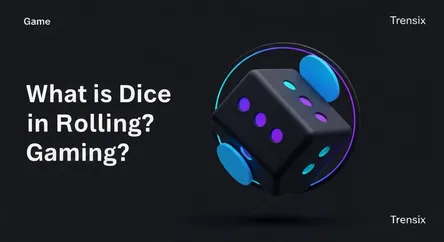Game
What is Dice Rolling in Gaming?

Discover what dice rolling is and why this core gameplay mechanic is trending. Learn how it adds chance, excitement, and strategy to games.
What is it?
Dice rolling is a fundamental gameplay mechanic used to introduce randomness and chance. By rolling one or more dice, players generate random numbers that determine the outcome of actions, from attacking an enemy to persuading a character. This system, often referred to as RNG (Random Number Generation) in video games, is a cornerstone of tabletop RPGs like Dungeons & Dragons and countless digital titles. It ensures that no two scenarios are identical, creating a dynamic and unpredictable experience. The probability of success is often modified by a character's skills, balancing pure luck with player strategy.
Why is it trending?
The massive resurgence of tabletop gaming, fueled by popular media like "Stranger Things" and livestreams like "Critical Role," has put dice rolling back in the spotlight. Blockbuster video games like Baldur's Gate 3 have masterfully translated the tension of a tabletop dice roll to a digital format, introducing millions to the mechanic. Furthermore, the popularity of the roguelike genre, which relies heavily on procedural generation and random outcomes, keeps the principles of the "roll" at the forefront of modern game design, celebrating chance and replayability.
How does it affect people?
Dice rolling creates an emotional rollercoaster for players, generating high-stakes tension, thrilling victories, and dramatic failures from a single moment of chance. This unpredictability forces players to adapt their strategies and think on their feet. In group settings, the physical or digital act of rolling dice becomes a shared social event, a focal point for collective cheers or groans. It transforms gameplay from a simple calculation into a memorable story of risk, luck, and shared experience, making every roll a potentially game-changing moment.